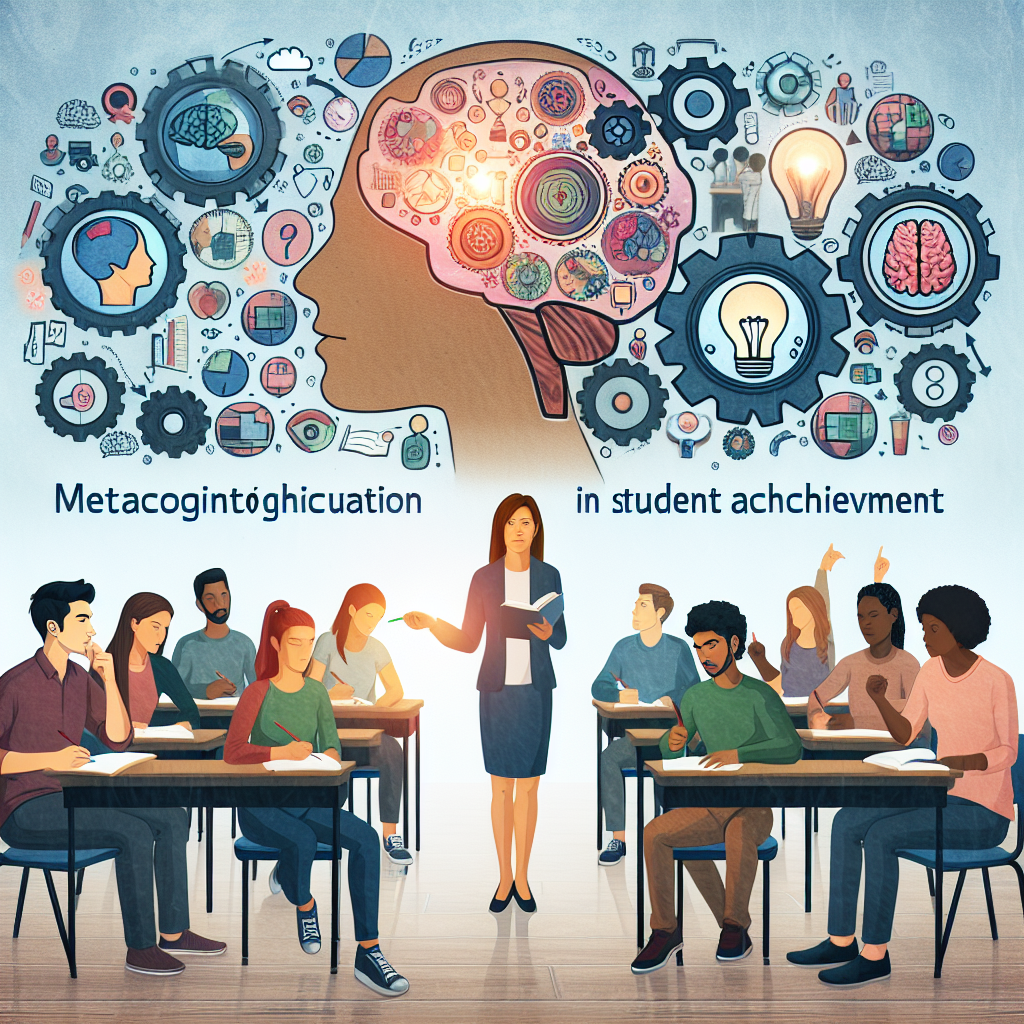Metacognition is a term that often gets thrown around in the realm of education, but what exactly does it mean and how does it impact student learning and achievement? In simple terms, metacognition refers to the awareness and understanding of one’s own thought processes. It involves thinking about thinking, being aware of one’s own cognitive abilities, and being able to monitor and regulate one’s own learning.
Metacognition plays a crucial role in student learning and achievement. When students are aware of their own thinking processes, they are better able to monitor their comprehension of material, identify areas where they are struggling, and take steps to improve their understanding. By reflecting on their own learning, students can become more self-regulated learners who are able to set goals, plan strategies, and evaluate their progress towards those goals.
One key aspect of metacognition is the ability to use cognitive strategies to enhance learning. This includes things like setting goals, organizing information, monitoring comprehension, and evaluating one’s own learning. Students who are able to actively engage in these cognitive strategies tend to be more successful learners because they are able to adapt their thinking processes to meet the demands of different tasks and subjects.
Another important aspect of metacognition is the ability to reflect on one’s own learning. This involves thinking about what strategies were effective, what strategies were not effective, and what changes can be made to improve future learning. By reflecting on their own learning, students can become more self-aware and better able to improve their academic performance.
Research has shown that metacognitive strategies can have a significant impact on student learning and achievement. Students who are taught metacognitive strategies tend to perform better on tests, have higher levels of motivation and engagement, and are better able to transfer their learning to new situations. In addition, students who are able to effectively regulate their own learning tend to be more successful in both academic and non-academic settings.
So how can educators help students develop their metacognitive skills? One way is to explicitly teach students about metacognition and provide opportunities for them to practice using metacognitive strategies. This can involve things like teaching students about different types of cognitive strategies, discussing the importance of reflection, and providing opportunities for students to set goals and monitor their progress.
Another way to support metacognition in students is to create a learning environment that promotes metacognitive thinking. This can involve things like encouraging students to ask questions, promoting collaboration and discussion, and providing opportunities for students to reflect on their own learning. By creating a learning environment that values metacognition, educators can help students develop the skills they need to become more self-regulated learners.
In conclusion, metacognition plays a crucial role in student learning and achievement. By developing their metacognitive skills, students can become more self-regulated learners who are better able to monitor, regulate, and reflect on their own learning. Educators can help support metacognition in students by explicitly teaching about metacognitive strategies and creating a learning environment that promotes metacognitive thinking.
FAQs:
1. What are some examples of metacognitive strategies?
Some examples of metacognitive strategies include setting goals, monitoring comprehension, organizing information, and reflecting on one’s own learning.
2. How can educators teach metacognitive strategies to students?
Educators can teach metacognitive strategies to students by explicitly teaching about metacognition, providing opportunities for students to practice using metacognitive strategies, and creating a learning environment that promotes metacognitive thinking.
3. How does metacognition impact student learning and achievement?
Metacognition impacts student learning and achievement by helping students become more self-regulated learners who are better able to monitor, regulate, and reflect on their own learning. Students who are able to use metacognitive strategies tend to perform better on tests, have higher levels of motivation and engagement, and are better able to transfer their learning to new situations.
4. Are metacognitive strategies beneficial for all students?
Metacognitive strategies can be beneficial for all students, but they may be especially helpful for students who are struggling academically or who have difficulty regulating their own learning. By teaching students metacognitive strategies, educators can help all students become more effective learners.




Leave A Comment